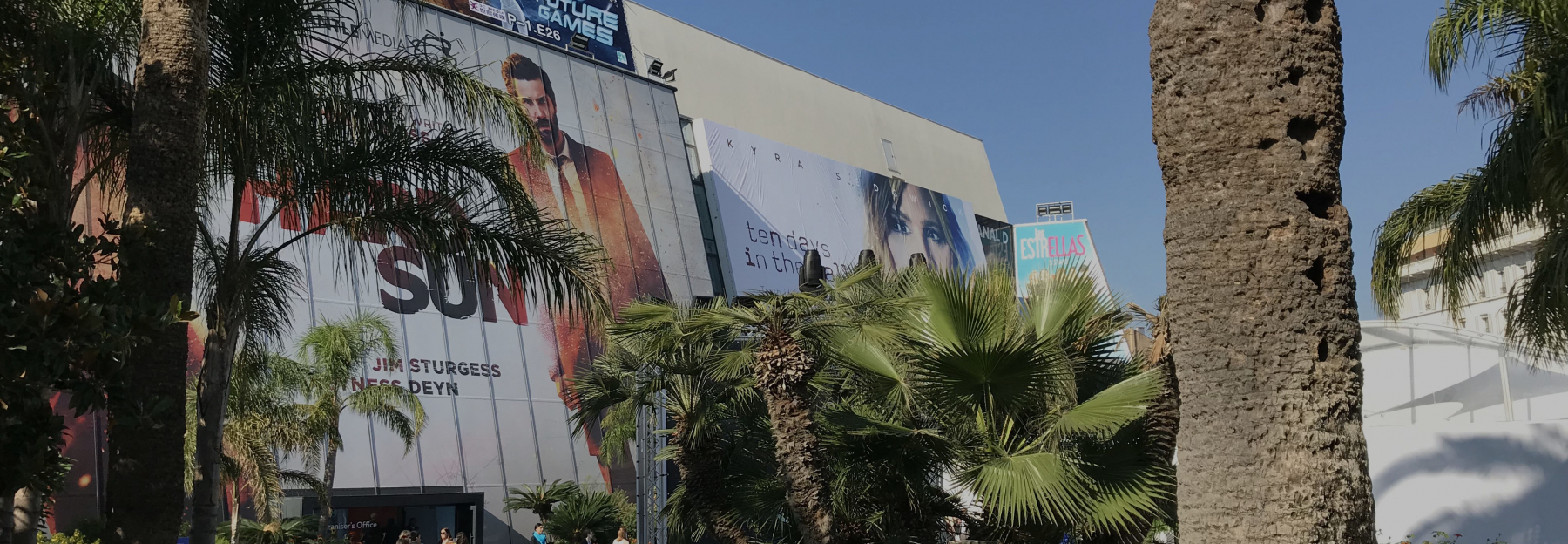What does the future hold for major markets?
It feels like MIPTV was only last week, but already people are getting ready for NATPE Europe and before we know it, it’ll be time for MIPCOM. It’s the norm for broadcast, specifically distribution, and it means your life plans are pretty much governed by the timing of key markets.
It feels like MIPTV was only last week, but already people are getting ready for NATPE Europe and before we know it, it’ll be time for MIPCOM. It’s the norm for broadcast, specifically distribution, and it means your life plans are pretty much governed by the timing of key markets. According to TBI Vision’s 2017 distributors survey, 97.2% of distributors see MIPCOM as a must-attend market and, despite the general consensus that the need to attend MIPTV is becoming less important, TBI’s survey found that there’s actually been year on year growth in favour of the event, up from 61.3% in 2016 to 64.8% in 2017.
That’s before we even consider the fact that many distributors also host their own screening events through the year. BBC Worldwide’s Showcase is a huge event in the broadcast calendar, then you’ve got the likes of ITV Studios, Passion Distribution and Fremantle to name a few of the distributors who also host their own, very popular and successful, events.
But these events aren’t simply a place where people buy and sell TV content, it’s more complex than that. In our own survey last year, we found that 25% of buyers no longer do business at markets, so if markets are becoming less transactional, what is it that makes them such an important fixture in our diaries?
Paul Heaney - CEO, TCB Media RightsEmail just doesn't have the same effect as a Salad Nicoise and a glass of cab sav
Relationships
To put it in simple terms, nothing facilitates building relationships like a face to face experience, and relationships in broadcast are now more important than ever. Large markets have evolved to be more about strategy, pitching and coproductions than simply buying the rights to a programme. The lines between distribution and production are becoming ever more blurred, distributors are investing at every stage of the production timeline and it’s a process that demands face to face interactions.
Geography
Broadcast one of the biggest industries in the world, with hugely influential companies situated in all 4 corners of the globe (a phrase that led to a huge flat earth debate in the office - we’re all team sphere). Large markets are the only guaranteed times of the year that everyone will be in the same place. It’s an opportunity to nurture existing relationships and to build new ones with people you may not otherwise have had the chance to meet - and there’s nothing like a rosé on the beach to help people bond.
The Cannes Effect
Nothing is ever going to have the same impact as a launch party in Cannes. Large markets have the wow factor; they get the industry talking, people get excited, there are celebrities, red carpets & press and it’s an experience that’s irreplaceable for the industry.
So, with markets becoming more relationship focused, what’s driving the transactional element of distribution?
Although markets allow people to meet and build relationships, technology definitely has a role to play when it comes to selling content. We’re seeing more and more distributors invest in their websites and screening platforms; wanting to streamline the online experience for buyers and almost replicate the at market experience all year round using technology.
It’s important to stress that technology needs to complement the existing processes of distribution; it could never replace the face to face or at market experience. Look at TRX for example, just a few weeks ago one of their founders, David Frank, announced a renewed direction for the platform known for facilitating sales online, stating that ‘some customers told us they were happy to check the availability of programming online, but wanted to do deals the old-fashioned way [with sales execs].’
Markets are the pillars of distribution and that’s not changing anytime soon. It is important though for distributors to not put all their faith in the large markets to drive sales. Buyers’ expectations are changing, the ways in which deals are done are evolving and the route to market needs to adapt alongside those changes. The ease with which deals can now be done outside of markets will likely lead to distributors being more selective about the markets they choose to attend and the distributors who fail to strike the balance between the at market and online experience are likely to fall behind.




